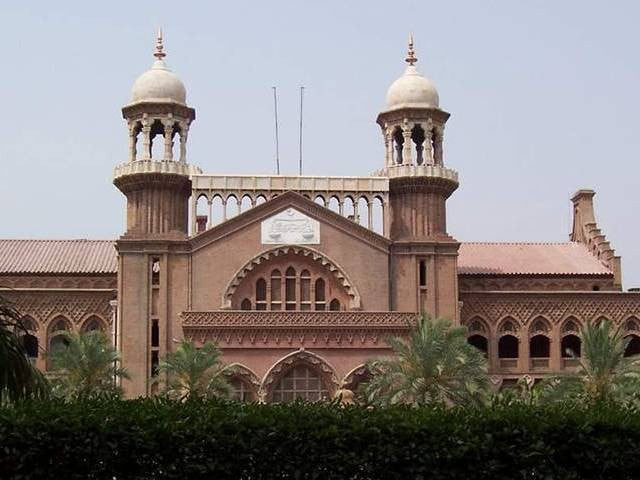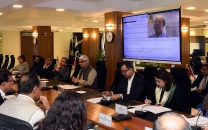‘No law on meetings’ with army detainees
Hasaan Niazi’s father challenges ‘illegal arrest and detention’ in LHC

The Punjab government clarified before the Lahore High Court (LHC) on Friday that no legal provisions or regulations allowed meetings with individuals in the custody of the armed forces.
This assertion was made in response to a petition filed by columnist Hafeezullah Niazi, seeking permission to meet his son, Barrister Hasaan Khan Niazi, currently held in military custody.
During the hearing, Additional Advocate General Ghulam Sarwar Nihung stated that police rules or jail regulations did not apply to such cases. He emphasized that while meetings might not be impossible, they required an application to the relevant authorities, subject to the sensitivity of the matter.
Nihung also pointed out that similar cases were already before the Supreme Court, suggesting that the petitioner should approach the top court. Nevertheless, Justice Sultan Tanvir sought further arguments on the petition from the lawyers on the next hearing date.
The petitioner’s plea sought his son Hasaan’s recovery and an inquiry into those responsible for his detention. When questioned by Justice Tanvir, the petitioner’s lawyer, Ishtiaq A Khan, alleged that the attorney general for Pakistan’s (AGP) assurance in the Supreme Court had been breached, as no meeting between the petitioner and his son had been allowed.
Khan further highlighted the contradiction between the AGP’s statement that no journalist or lawyer was in the army’s custody and the fact that journalist Imran Riaz Khan and Barrister Hasaan Niazi were indeed in military custody. He emphasized that the Supreme Court's order pertained to all individuals in army custody, and the court had the authority to direct concerned parties to facilitate meetings.
Advocate Ishtiaq Khan asserted that the Army Act could not infringe upon citizens’ rights guaranteed by the Constitution. He questioned why, if Indian spy Kulbhoshan Jadhav’s family could meet him, the families of detained journalists or lawyers could not meet their loved ones.
Nihung contended that the matter of trial under the Army Act was under the Supreme Court’s consideration, specifically whether individuals in army custody could meet others. He clarified that the apex court had yet to decide on this matter.
The petition itself calls for the immediate release of the detenu, Hasaan Niazi, and requests the court to direct relevant authorities to adhere to Section 61 of the Criminal Procedure Code (CrPC), which mandates the presentation of an arrested individual before a magistrate within 24 hours of arrest. The petitioner argues that Hasaan’s detention violated this provision and sought an inquiry into those responsible.
The petitioner narrates that the Punjab police allegedly abducted Hasaan from a house in Abbottabad on August 13 without proper reasons, warrants, or due process. The petitioner claimed that the police officials took Hasaan to an undisclosed location without producing any search or arrest warrants.
The petition underscores that each individual is accountable for their alleged crimes alone, emphasizing that neither the Constitution nor any law permits police to abduct and detain a citizen to pressure someone else. It accuses the respondents of disregarding the principles of "fair trial" and "due process" enshrined in Article 10-A of the Constitution.



















COMMENTS
Comments are moderated and generally will be posted if they are on-topic and not abusive.
For more information, please see our Comments FAQ